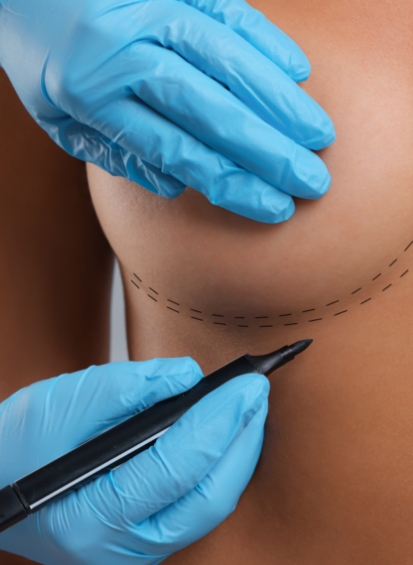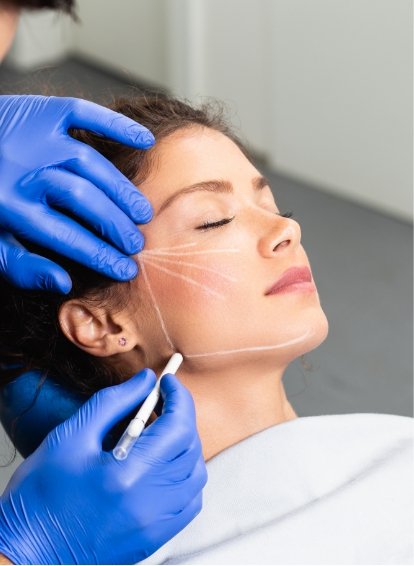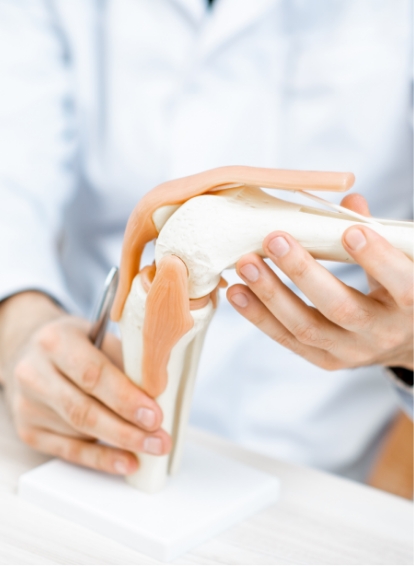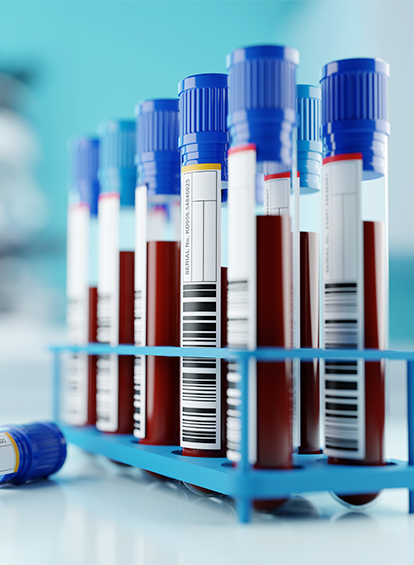Sports & Non-Surgical Orthopaedic Treatments
Hand Injuries
Hand injuries encompass a wide range of issues that can impact the bones, muscles, tendons, and nerves within the hand, wrist, and fingers. These injuries can result from trauma, overuse, or degenerative conditions, leading to pain, swelling, and limited mobility, making it challenging to perform everyday tasks.
At The Clinica, our specialists in Sports & Non-Surgical Orthopaedics provide targeted care for hand injuries, offering treatments to relieve pain, restore function, and support the healing process for patients of all ages.
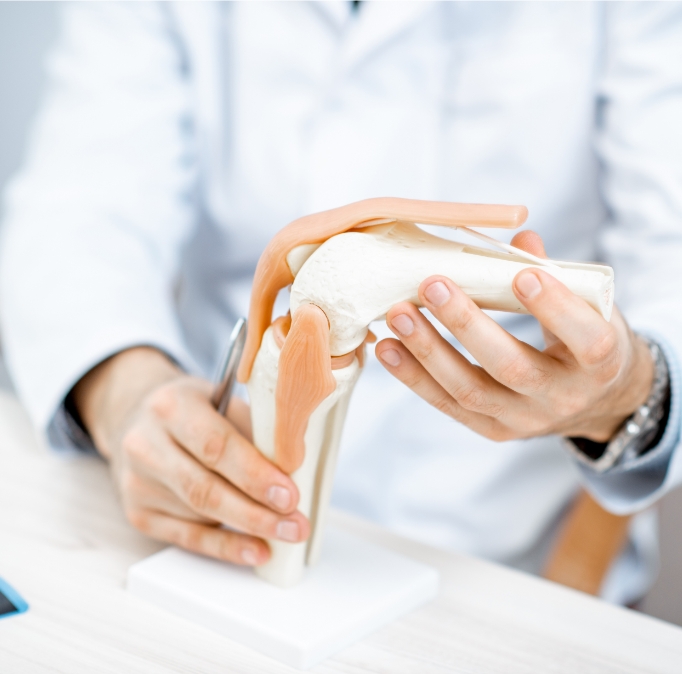
What is it?
Hand injuries refer to any damage to the structures of the hand, including bones, joints, tendons, ligaments, and nerves. These injuries range from fractures, sprains, and dislocations to conditions like tendonitis and carpal tunnel syndrome, each presenting with unique symptoms and requiring specific treatments. Trauma, such as falls, sports injuries, or work-related incidents, is a common cause of acute hand injuries, while repetitive movements or age-related degeneration can lead to chronic issues.
Symptoms of a hand injury vary depending on the type and severity of the damage. Patients may experience pain, swelling, stiffness, bruising, and a restricted range of motion. In some cases, nerve involvement may result in tingling, numbness, or weakness in the fingers or hand. Proper diagnosis and treatment are essential to prevent complications and ensure optimal recovery, especially in injuries involving the tendons or nerves.
Without treatment, hand injuries can lead to chronic pain, reduced function, and, in severe cases, permanent damage. Early intervention is key to maintaining hand strength and dexterity, which are crucial for daily activities.
Book an appointment
If you are new to The Clinica or have not yet begun treatment with Dr. Williams for this condition, please note that an Initial Sports Consultation must be booked before proceeding with any specific service or treatment plan.
Additional Information

Causes of the condition
Hand injuries can arise from various causes, including acute trauma, repetitive strain, and degenerative conditions. Acute trauma, such as fractures or dislocations, is often the result of direct impact or a fall, causing immediate pain, swelling, and bruising. Sports, especially contact or high-impact activities, are common sources of hand injuries, as are accidents in the workplace, particularly in occupations requiring heavy lifting or use of machinery.
Repetitive strain injuries, such as tendonitis or carpal tunnel syndrome, result from overuse of the hand muscles and tendons, often due to repetitive tasks like typing, gripping, or manual work. These repetitive motions place strain on the tendons and nerves, causing pain, stiffness, and inflammation over time.
Degenerative conditions, such as arthritis, are another common cause of hand injuries, particularly in older adults. Arthritis affects the joints, leading to pain, stiffness, and reduced flexibility, making it difficult to perform simple tasks. Identifying the underlying cause is essential for effective treatment and long-term relief.
Tests that can be done to confirm the condition
Diagnosing a hand injury involves a physical examination and an assessment of symptoms and medical history. The clinician will examine the affected hand, assessing pain levels, range of motion, and signs of swelling or bruising. Specific tests may be performed to assess joint stability and muscle strength, helping to pinpoint the type and extent of the injury.
Imaging tests, such as X-rays, ultrasound, and MRI, are commonly used to confirm the diagnosis and assess the severity of hand injuries. X-rays provide detailed imaging of the bones, helping to detect fractures, dislocations, or bone spurs. Ultrasound is useful for assessing soft tissue injuries, such as tendonitis, as it provides real-time images of the tendons and muscles.
MRI offers a comprehensive view of both soft tissues and bone structures, making it valuable for diagnosing complex injuries involving the ligaments, tendons, or nerves. In cases where nerve involvement is suspected, electromyography (EMG) may be conducted to evaluate nerve function and detect any potential nerve damage.
Effective treatments
Treatment for hand injuries varies based on the type and severity of the injury. Initial treatment often includes rest, ice application, and immobilisation with splints or braces to stabilise the hand and prevent further damage. For minor injuries, over-the-counter pain relievers may be recommended to alleviate pain and inflammation.
Physical therapy plays an essential role in hand injury recovery, focusing on exercises that restore flexibility, strength, and coordination. Stretching and strengthening exercises are introduced gradually to promote healing and prevent re-injury. For conditions like tendonitis or carpal tunnel syndrome, specific ergonomic adjustments may be recommended to reduce strain on the hand and wrist during daily tasks.
In cases of severe injuries, such as fractures or complete tendon tears, surgery may be required to repair damaged structures. Surgical intervention may be followed by rehabilitation to ensure full recovery. For patients with arthritis or chronic conditions, corticosteroid injections can provide relief from inflammation and pain, improving hand function.
Book an appointment for an initial consultation
Booking an initial consultation at The Clinica is the first step towards assessing and managing a hand injury effectively. During this consultation, our specialist will conduct a thorough evaluation of your hand, discussing your symptoms, medical history, and any contributing activities. A physical examination of the hand will help identify the affected area and assess the severity of the injury.
If necessary, imaging tests will be arranged to confirm the diagnosis and guide treatment. Based on these findings, a personalised treatment plan will be developed, focusing on pain relief, rehabilitation, and strategies to support recovery, ensuring a structured approach to restoring hand function.
Frequently Asked Questions
Recovery time depends on the type and severity of the injury. Mild injuries may heal within a few weeks, while fractures or tendon injuries may require several months of treatment and rehabilitation.
Yes, many hand injuries can be effectively managed with non-surgical treatments, including immobilisation, physical therapy, and medications. Surgery is typically reserved for severe or complex injuries.
Common symptoms include pain, swelling, bruising, stiffness, and limited movement in the hand or fingers. Some injuries may also cause numbness or tingling if nerves are involved.
Yes, physical therapy is essential for restoring strength, flexibility, and coordination after a hand injury. It also helps prevent stiffness and supports long-term recovery.
Imaging tests like X-rays or MRI are often recommended to accurately diagnose the injury and assess the extent of damage, especially in cases of fractures or ligament tears.
Specialised Clinics
General Enquiries
Please send your enquiry to us and our Practice Manager will be in touch shortly. Alternatively, if you would rather speak to us or your enquiry requires our urgent attention, please call us on 01344 946363.

